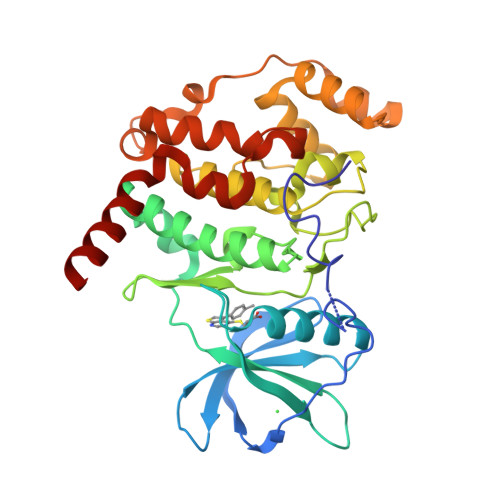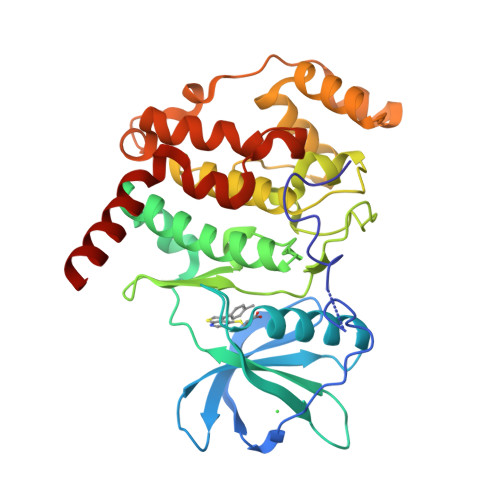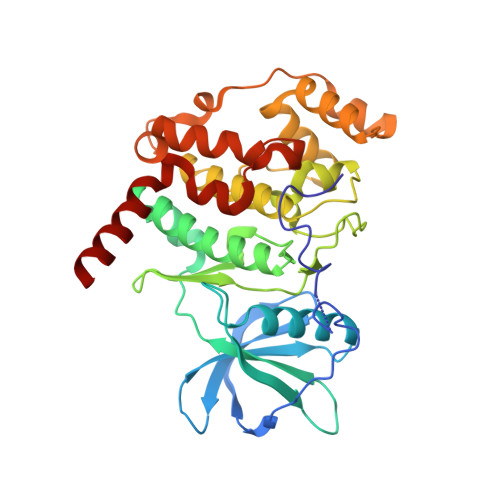Arabidopsis casein kinase 2 triggers stem cell exhaustion under Al toxicity and phosphate deficiency through activating the DNA damage response pathway.
Wei, P., Demulder, M., David, P., Eekhout, T., Yoshiyama, K.O., Nguyen, L., Vercauteren, I., Eeckhout, D., Galle, M., De Jaeger, G., Larsen, P., Audenaert, D., Desnos, T., Nussaume, L., Loris, R., De Veylder, L.(2021) Plant Cell 33: 1361-1380
- PubMed: 33793856
- DOI: https://doi.org/10.1093/plcell/koab005
- Primary Citation of Related Structures:
6Z1C - PubMed Abstract:
Aluminum (Al) toxicity and inorganic phosphate (Pi) limitation are widespread chronic abiotic and mutually enhancing stresses that profoundly affect crop yield. Both stresses strongly inhibit root growth, resulting from a progressive exhaustion of the stem cell niche. Here, we report on a casein kinase 2 (CK2) inhibitor identified by its capability to maintain a functional root stem cell niche in Arabidopsis thaliana under Al toxic conditions. CK2 operates through phosphorylation of the cell cycle checkpoint activator SUPPRESSOR OF GAMMA RADIATION1 (SOG1), priming its activity under DNA-damaging conditions. In addition to yielding Al tolerance, CK2 and SOG1 inactivation prevents meristem exhaustion under Pi starvation, revealing the existence of a low Pi-induced cell cycle checkpoint that depends on the DNA damage activator ATAXIA-TELANGIECTASIA MUTATED (ATM). Overall, our data reveal an important physiological role for the plant DNA damage response pathway under agriculturally limiting growth conditions, opening new avenues to cope with Pi limitation.
Organizational Affiliation:
Department of Plant Biotechnology and Bioinformatics, Ghent University, Ghent B-9052, Belgium.




















